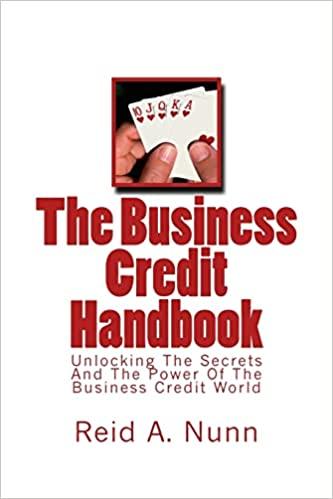Question
DIY Chef (Post Series A Capitalization Table) Shares % Common Stock: Founders: Sierra & Derrick 4,000,000 40% Reserved for Stock Option Plan 2,000,000 20% Series
| DIY Chef (Post Series A Capitalization Table)
| |||
|
| Shares |
| % |
| Common Stock: |
|
|
|
| Founders: Sierra & Derrick | 4,000,000 |
| 40% |
| Reserved for Stock Option Plan | 2,000,000 |
| 20% |
| Series A Preferred Stock: |
|
|
|
| CMU Ventures II, LP | 4,000,000 |
| 40% |
| Total Capital Stock | 10,000,000 |
| 100% |
Use the above capitalization table for DIY Chef and assume that:
- Founders (Sierra & Darrick) purchased their shares of common stock for $0.001 per share (for a total of $4,000).
- A venture capital fund managed by Carson and Shanell of CMU Ventures (CMUV) recently paid $2.00 for each share of its Series A preferred stock (for a total of $8,000,000).
- Immediately after the Series A financing, CMUV has the right to convert each share of its Series A preferred stock into one share of common stock.
- The Series A preferred stock has full ratchet price-based anti-dilution protection.
- The Series A preferred stock has a ONE times liquidation preference right (i.e., LP = 1X) AND the Series A preferred stock is full participating.
- The above capitalization table is accurate and complete (i.e., immediately after the Series A financing: (a) there are no other outstanding shares of stock or options to purchase stock; and (b) DIY Chef has not yet issued any shares reserved for its Stock Option Plan).
-
Again, for this question, assume that: (a) a large Delaware corporation, Big Public Co., is going to buy all of DIY Chef's assets for $28,000,000; (b) immediately after the sale, no shares of DIY Chef's common stock will be subject to any vesting; (c) immediately after the sale, DIY Chef has no debts or other liabilities; and, (d) DIY Chef is going to distribute all of the sale proceeds to its stockholders.
Also, for purposes of this question only, assume that CMUV had acquired NON-participating preferred stock (i.e., instead of the full participating preferred stock). Assume further that the NON-participating preferred stock has a ONE times liquidation preference right (i.e., LP = 1X).
Should CMUV convert its preferred stock to common stock after learning about the terms of the sale (HINT: 50% of $28,000,000 is $14,000,000)?
No - because converting to common stock would cause CMUV to lose its special rights
No - because converting to common stock would cause CMUV to receive LESS cash (than it would receive if it does NOT convert)
Yes - because converting to common stock would cause CMUV to receive MORE cash (than it would receive if it does NOT convert)
It does not matter. CMUV will receive exactly the same amount of cash regardless of whether it converts the preferred stock to common stock
1 points
QUESTION 23
-
For this question, assume that: (a) DIY Chef triggered CMUVs anti-dilution protection by issuing an additional 100,000 shares of DIY Chef's Series A preferred stock for $0.10 per share; and, (b) CMUV then immediately converted all of its Series A preferred stock to common stock.
How many shares of common stock is CMUV entitled to upon its conversion?
4,000,000 shares
4,100,000 shares
40,000,000 shares
80,000,000 shares
1 points
QUESTION 24
-
Considering your response to the previous question. The Founders percentage ownership interest in DIY Chef:
Will decrease (i.e., the founders will now own less than 40%)
Will stay the same (i.e., the founders will still own 40%)
Will increase (i.e., the founders will own more than 40%)
Step by Step Solution
There are 3 Steps involved in it
Step: 1

Get Instant Access to Expert-Tailored Solutions
See step-by-step solutions with expert insights and AI powered tools for academic success
Step: 2

Step: 3

Ace Your Homework with AI
Get the answers you need in no time with our AI-driven, step-by-step assistance
Get Started


